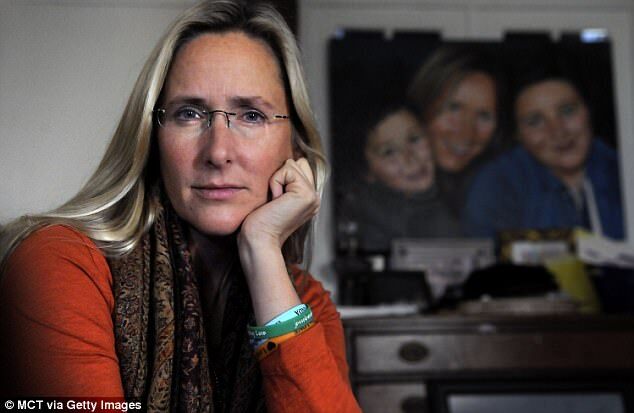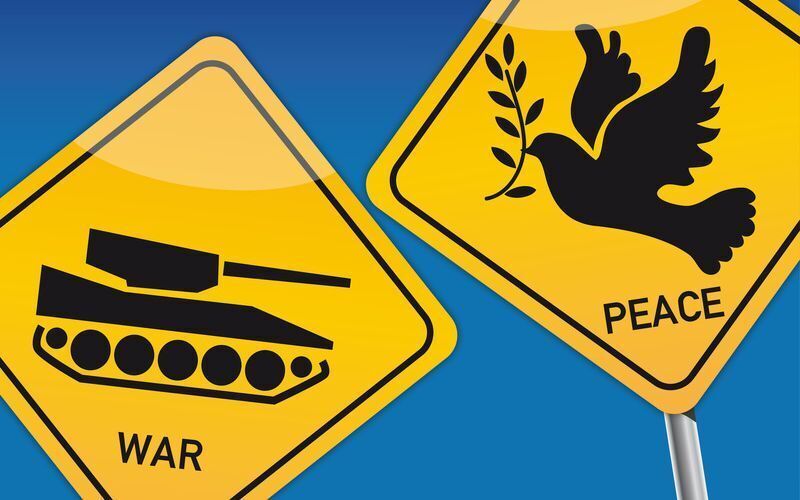Because the Unthinkable Has Become Commonplace: From Sandy Hook to Seattle

by Barbara A. Kerr
In mid-June of this year, I received an email from a young friend of mine who was interning as a school counselor at a middle school in Troutdale, Oregon when she was drafted into action as a member of a “flight team,” a crisis response team. A shooter had been reported in nearby Reynolds High School, and the middle school and the high school were both in lockdown. The team’s task was to evacuate the middle school students and deliver them safely to their parents and guardians. After a chaotic day during which the flight team attempted to console traumatized students and re-unite them with worried loved ones, the tragic news was that a 14-year old freshman had shot and killed another freshman with an assault rifle. He had also shot at and grazed the hip of the PE teacher, who ran down the hall alerting everyone that there was a shooter on the campus, thus probably saving many lives. Eventually, school security cornered the shooter in a bathroom where he took his own life.
That incident is only one of at least 74 school shootings that have taken place since the Sandy Hook Elementary School shooting on December 14, 2012. On that day, 20-year-old Adam Lanza first shot and killed his mother in her bed and then took his guns to the suburban elementary school where he killed 26 people—six adults and 20 children--before committing suicide. The unthinkable seems to have become commonplace here in 21st century America.
Each incident provokes an explosion of reactions—fear, outrage, blame, anger, disbelief, and shock as well as an outpouring of sympathy for the victims and their families. And with each incident, we want desperately to know why—why did this terrible event happen? Some blame guns and gun control laws. Some blame parents and even the school system. Some blame video games and violence in the media. Some blame our lack of knowledge about mental health and mental illness. Some simply blame “evil” as if that existed as an entity instead of an adjective. But there are others who have moved past blame to forgiveness and to a commitment to spread compassion for a better world for our children and for all of us who share life on Earth.
One Sandy Hook mother who lost her six-year old son, Jesse, in the terrifying massacre on that December day in 2012, has written about her reactions in a book, Nurturing Healing Love. Scarlett Lewis sent her son off to school on that frosty morning after taking a quick snapshot of a message he wrote on the windshield of the car, “Mom, I love you.” That was the last time she was to see him alive. A counselor was assigned to Lewis and her son J.T., Jesse’s older brother. At first, frozen by grief and anger, Lewis didn’t want to talk to anyone. She and J.T. didn’t go to work or to school.
Eventually, however, Lewis and J.T. began to feel Jesse’s presence even as they accepted the reality of his physical death. They began to reach out to others, to work with therapists, and to seek a way to heal and to make meaning of the tragedy. Lewis rejected the notion that “you’ll never get over this pain” offered by a social worker who had lost a child in other circumstances. Instead, she was determined to take the journey through grief in her own way and to make her own choices. Scarlett Lewis’s difficult and emotional journey brought her to a remarkable choice. She established a foundation that would encourage choice—the choice to love--even in the most tragic circumstances. The Jesse Lewis Choose Love Foundation is creating alliances with educators and humanitarians around the globe whose message embodies the belief that choosing love and forgiveness over anger and violence can heal our hearts and our world. This foundation has signed on as a partner with The Charter for Compassion International, which seeks to bring compassion to all aspects of our lives throughout the planet.
Lewis’s own journey toward forgiveness of her son’s murderer proved to be a positive and live-affirming model for her son J.T. as well. When one counselor, Dr. Lori Leyden, connected Scarlett and J.T. on Skype with a group of survivors of the Rwandan genocide, J.T. was inspired to begin his own compassionate campaign, “Newtown Helps Rwanda,” giving presentations and raising money to help Rwandan survivors.
Not far from where the shootings took place in Sandy Hook, a professor of political science at Western Connecticut State University, Dr. Christopher Kukk, also contemplated the questions that we all ask in the face of such horror. He is the father of three small boys, and much of his research and many of his publications focus on education issues as well as the sustainability of civil society. Dr. Kukk had developed a curriculum on compassion, creativity, and innovation. He was contacted by Scarlett Lewis, who was searching for people who knew about teaching compassion in order to build programs for the Jesse Lewis Choose Love Foundation. Their common goal and inspiration eventually led Lewis and Kukk to a meeting with President Obama, where they talked to him about bringing compassion into the nation’s education system. The President was enthusiastic and put them in touch with his sister, Maya Soetoro-Ng, who was also working on a curriculum of compassion, entitled the Seeds of Compassion.
Dr. Kukk’s current work focuses on what he has called the connected five C’s — an integrated system based on the premise that the purpose of an education is to develop student capacities for knowing (Concept), imagining (Creativity), understanding (Compassion), doing (Courage) and questioning (Constraint). He is currently writing curriculum that weaves the learning of compassion into the common core standards. The first K-5 book (Connecting Space) and its accompanying teacher’s guide will be finished soon. Kukk took the lead in mentoring Western Connecticut State University to become a compassionate university, and he is helping to bring the Charter for Compassion to the entire state university system.
Scarlett Lewis and Christopher Kukk will be the keynote speakers on the night of August 11 at the beginning of a two-day conference,” From Sandy Hook to Seattle,” to be held at Cleveland High School, sponsored by Compassionate Seattle and The Charter for Compassion International. The evening presentation is open to anyone interested in what we can do to make a difference, not only to keep our children physically safe from harm, but to provide them with the understanding that compassion, a concept that can be taught and learned, is the real key to creating a better world for our children and for the future we all share. Advanced registration for the presentation is advised.
And what about my young friend in Oregon who is an intern counselor and was caught up in one of the many recent school shootings? She, too, experienced many emotions in the aftermath of that incident that resulted in the death of two freshman boys and affected the lives of many more. In her email, she spoke of the post-traumatic stress that she and others were experiencing—irritability, trouble with sleep, anger, and sadness among them. She concluded with a bit of wisdom, earned on the front lines: “We are all sad, angry and maddened by how many resources come afterwards. Millions are spent on dealing with what happens once the shooting occurs—resources we could use to help kids beforehand to prevent these things from happening. We don’t know what drove Jared [the shooter]. But one thing that seems to become more common in many of these instances is that the perpetrator usually feels humiliated or embarrassed or wronged. Maybe we need to do a better job as a society in helping our kids learn that experiencing those feelings is a part of life and survivable.“
Barbara Kerr has been a professor of English literature, and is a Master Certified Coach and is a certifie administrator of the EQ-i, an Emotional Intelligence inventory, as well as other assessments to assist individuals, teams, organizations in moving forward to fulfill their vision. Barbara is also a member of the Society for Emotional Intelligence and currently serves on the leadership team of the Los Angeles chapter.

